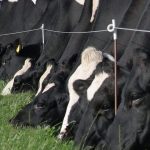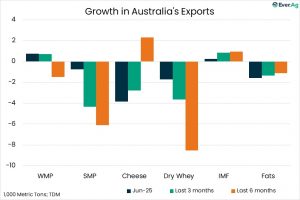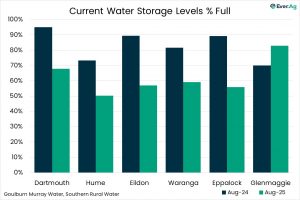
eastAUSmilk’s recent round of meetings with government departments and ministerial offices has seen government better understand the situation of dairy farmers, but no big leaps forward, according to government relations manager Mike Smith.
“Drought is the big issue we’ve talked about with each of the Commonwealth, NSW and Queensland governments, pressing them on the need for more direct assistance than is currently available,” he said.
“While eastAUSmilk supports governments focusing on building farm business resilience, cutting such programs as freight subsidies doesn’t make sense until resilience is further embedded.
“We’ve also stressed that drought is here already — even the farmers who aren’t yet droughted are planning to follow their neighbours in de-stocking, stockpiling and sourcing fodder from other areas, and generally preparing for the worst.”
There were also discussions around bobby calves.
“We’re proposing to governments a multi-faceted approach to resolving the bobby calves/dairy beef issue, starting with investigating the extent of the problem — how many are using sexed semen and where, what stops sexed semen uptake or changing to dairy beef breeds, how many bobby calves are there annually, what has been the experience with dairy beef breeds, and more,” Mr Smith said.
“Once we have a better handle on the size and shape of the issue, we’ll be better able to pursue relevant solutions.”
The same round of meetings included the Australian Competition and Consumer Commission and focused on the status of Dairy Industry Code review.
“We pressed how important it was for the code to move with the times, address newly discovered problems, and rebalance negotiating power between farmers and milk processors,” Mr Smith said.
“We’ll be collating initial code amendment suggestions and providing them to Department of Agriculture, Fisheries and Forestry in the near future, to ensure they are aware of the scope we see necessary for the review.
“When talking with the Commonwealth, we also repeated our rejection of the so-called Biosecurity Protection Levy, and noted we’ll be making a submission to the Treasury review of unfair trading laws.”

























